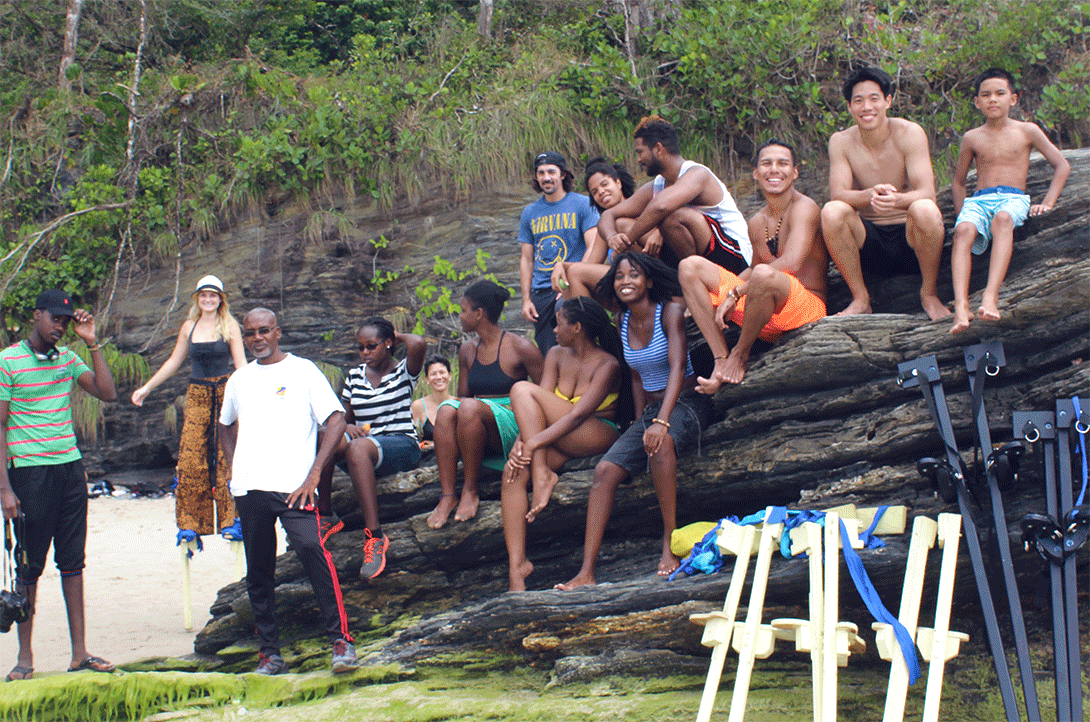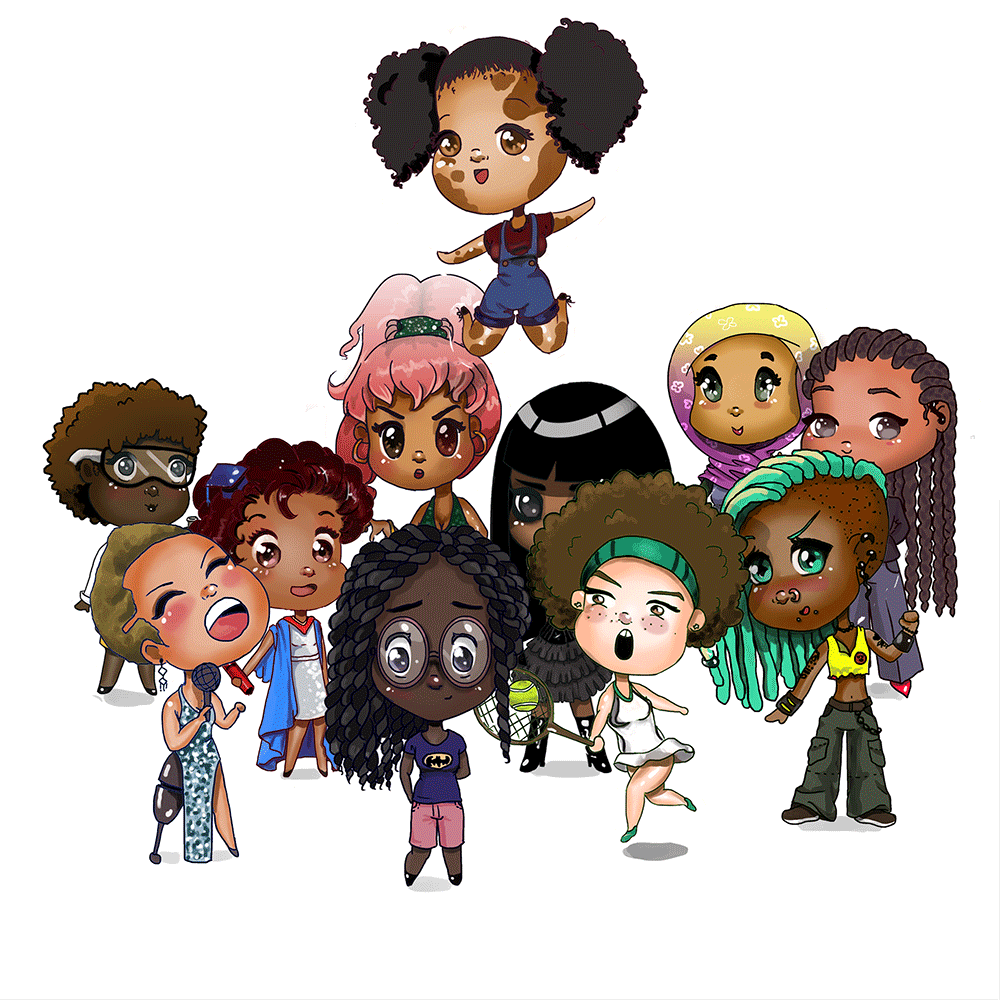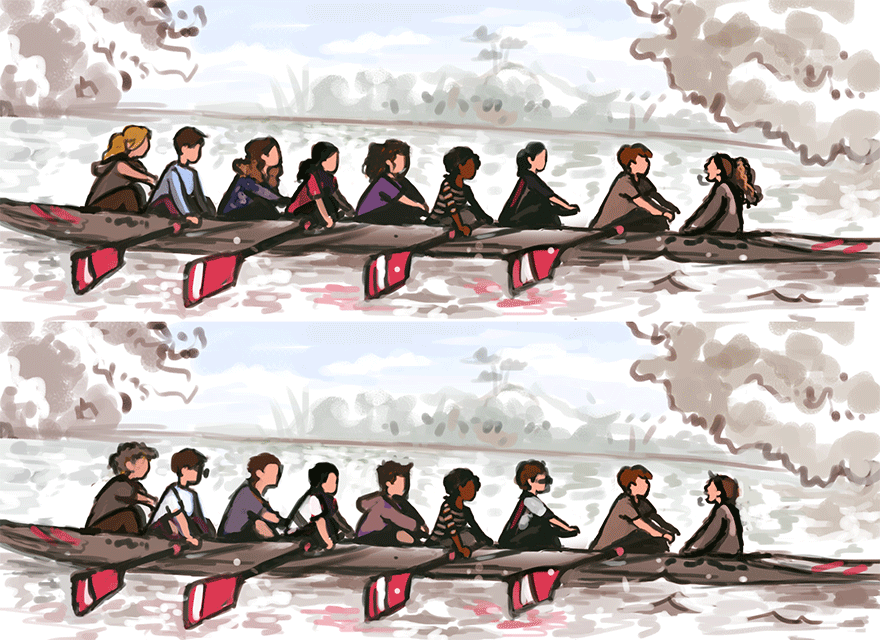I don’t know how much I believe in the ‘good’ of what I do, my job. I currently work in the international development sector: reviewing, opining, suggesting, researching–sometimes implementing, sometimes analysing, sometimes planning–, writing about people and places I don’t belong to. I wake up some days and don’t feel a sense of pride in what I do, or that I’m changing the world for the better. Instead I feel guilt, and relatedly shame, that I’m part of upholding a system where people from the Global North, high-income countries, white people (all roughly and broadly speaking) are entrusted with large sums of money to strategize on and research people from the Global South, low and middle income countries, Black people, people who are not white (all broadly and roughly speaking).
I’ve found myself in this group of ‘Northerners’ researching the ‘South’: mainly Africa and South Asia. As a Black woman from the Caribbean, I might be considered ‘Southern’ and from a low to middle income region (in some senses)– but I don’t research the Caribbean. I’m out here writing stuff most days about people and cultures I feel like I know very, very little about, whilst being somewhat trusted as an expert on them. I work amongst many people who also seem to know little of those cultures, places and lived experiences, but are trusted as experts on them. Why? Because of some sort of ‘learned methodologies, theory, a book and academic merit born in the ‘right’ heminsphere’– theory, wiki sense and the method of knowledge gathering validates expertise, except when that methodology is life in the skin of the researched.
I got my ‘method merit, book and theory credit’ from studying a PhD at Cambridge University. I’ve got amongst the most valued types of ‘merits’ in this sphere. Nevermind that I don’t have lived cultural, historic, ancestral, bodily or other experience of being a Black Ugandan young woman– how she feels on a daily, what she faces on a daily, how she’s perceived on a daily with her accent, what her granny did, her clothing and skin, what she achieves an a daily, her perception of time and seasons–because that experience, that lived and living merit doesn’t matter when it comes to strategising about her future.
International development is content with deciding on an agenda of what that young woman needs -devoid of her input-, what data we need to collect from her -devoid of her input-, how we need to collect that data -devoid of her input-….. and then pats itself on the back for involving her in the process and ‘listening to her speak’. Nevermind that she spoke on terms that weren’t her own, international development still writes ‘her true story’, all whilst she’s seen as being insecure, afraid to share her true feelings and maybe a bit daft when she doesn’t talk at length when asked to talk about a topic she didn’t choose to.
This International development version of her story is then the one that will become the trusted, evidenced and believed story the world over: a view curated and cropped by a photographer. Noone trusts a selfie.
This state of affairs won’t be accepted if turned around. You won’t hire a team of African researchers to define, strategise on, research and fix problems that European children are facing, all whilst sidelining and silencing the work done by, and experiences of, European researchers because ‘Africans know Europe and Europeans best because they have ‘cool method, theory and book”. It eh matter at all that the Africans never lived it. However, we accept that Europeans, Americans, or those indoctri (scratch) educated under those systems, the ‘best systems’, the accepted methodology, simply must be the best, the most qualified, at speaking on everyone. Life is not considered expertise, or a form of building understanding in and of itself.
So, then we have this bizzare situation where I, Cambridge-educated black Caribbean gyal, who knows about the Caribbean, technology and psychology from Caribbean and white Euro-American contexts, is making recommendations on what to do in Senegal. The strength of my recommendations aren’t to be based on, or filtered through, my experience as a, and knowledge of living and being received as a Black woman from the Global South (perhaps one of the things I have in common with Senegalese women, in some capacity). Instead its strength hinges solely on research skills and theory from Cambridge University and knowledge picked up in books and on websites– the only things you really seem to need, to be able to understand and preach about what Black Senegalese women need (and maybe a trip as a tourist or glorified ‘expat’ as icing on the cake).
I don’t like this. On good days, I feel like my work might have a positive effect; I feel a bit hopeful. I imagine that I’m a good person doing meaningful work and providing a useful service to people in low and middle countries by compiling information, analysing stuff and doing research that can be helpful. On bad days I feel like I am lying about my expertise and being believed for the lie that I am whilst doing a horrible injustice to researchers in various countries whose work might have a better chance of being funded and listened to if my work didn’t exist. Sometimes I want to be a revolutionary, burn it all down and start over, but, then I want money more. I want some sense of comfort in life. I like my new house. So I suppress my shame and guilt and plug on writing things that I feel I don’t have the proper authority, time or collaboration to write. I do little things to try and ease my conscience by writing caveats and limitations into pieces about why the work I do shouldn’t be trusted as ‘the truthiest thing ever’, about why you can’t have a fully valid body of work on a topic if lived experience is not properly integrated into the process of creating it.
I do believe that those research skills from Cambridge hold weight. They matter. They’re helpful in analysing, crafting and telling parts of the story. They’re just very, very far from everything. I think that it’s ignorant to believe otherwise. I am painfully aware that everything I write, everything I read, every plan I make about researching others is limited by my obscured vision of what it means to live as and be. I long for a time when I can work more closely with people who have that sight and insight that I don’t have.
‘Work closely’ not just in asking them to tell me about what I want to hear about. Work closely not just in taking data on them or asking them to read something that I wrote about them after the fact. But work closely such that they are involved from the very start: in saying what should be researched, why it should be researched, how it should be researched, what they want to speak about, where the money should go, and taking the money to run projects themselves. I want to learn from and work under and with a team that has a fuller view –lived experience, learned skills–collectively that team should have it all and are involved in the research all the way from strategising to implementation.
Until then, I guess that I’ll just deal with my guilt and begrudgingly tout my work on those bad days, or not tout it at all… because I’m often not that proud of what I do. I compile, analyse and write some stuff, that people in the low and middle income countries that my work focuses on, might find useful, but I also uphold a white supremacist system that sees little value in the experience of non-White, non-wealthy, non-Northern life.


